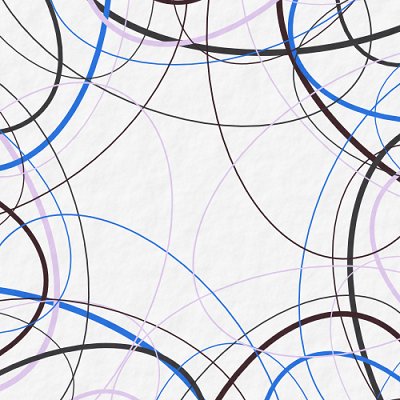結果
| 問題 | No.274 The Wall |
| コンテスト | |
| ユーザー |
 ferin ferin
|
| 提出日時 | 2019-09-20 18:25:15 |
| 言語 | C++14 (gcc 15.2.0 + boost 1.89.0) |
| 結果 |
WA
|
| 実行時間 | - |
| コード長 | 4,924 bytes |
| 記録 | |
| コンパイル時間 | 2,015 ms |
| コンパイル使用メモリ | 182,676 KB |
| 実行使用メモリ | 6,944 KB |
| 最終ジャッジ日時 | 2024-09-14 10:07:51 |
| 合計ジャッジ時間 | 2,846 ms |
|
ジャッジサーバーID (参考情報) |
judge1 / judge4 |
(要ログイン)
| ファイルパターン | 結果 |
|---|---|
| sample | AC * 4 |
| other | AC * 19 WA * 3 |
ソースコード
#include <bits/stdc++.h>
using namespace std;
using ll = long long;
// #define int ll
using PII = pair<ll, ll>;
#define FOR(i, a, n) for (ll i = (ll)a; i < (ll)n; ++i)
#define REP(i, n) FOR(i, 0, n)
#define ALL(x) x.begin(), x.end()
template<typename T> T &chmin(T &a, const T &b) { return a = min(a, b); }
template<typename T> T &chmax(T &a, const T &b) { return a = max(a, b); }
template<typename T> bool IN(T a, T b, T x) { return a<=x&&x<b; }
template<typename T> T ceil(T a, T b) { return a/b + !!(a%b); }
template<typename T> vector<T> make_v(size_t a) { return vector<T>(a); }
template<typename T,typename... Ts>
auto make_v(size_t a,Ts... ts) {
return vector<decltype(make_v<T>(ts...))>(a,make_v<T>(ts...));
}
template<typename T,typename V> typename enable_if<is_class<T>::value==0>::type
fill_v(T &t, const V &v) { t=v; }
template<typename T,typename V> typename enable_if<is_class<T>::value!=0>::type
fill_v(T &t, const V &v ) { for(auto &e:t) fill_v(e,v); }
template<class S,class T>
ostream &operator <<(ostream& out,const pair<S,T>& a) {
out<<'('<<a.first<<','<<a.second<<')'; return out;
}
template<class T>
ostream &operator <<(ostream& out,const vector<T>& a){
out<<'[';
for(const T &i: a) out<<i<<',';
out<<']';
return out;
}
template<class T>
ostream &operator <<(ostream& out, const set<T>& a) {
out<<'{';
for(const T &i: a) out<<i<<',';
out<<'}';
return out;
}
template<class T, class S>
ostream &operator <<(ostream& out, const map<T,S>& a) {
out<<'{';
for(auto &i: a) out<<i<<',';
out<<'}';
return out;
}
int dx[] = {0, 1, 0, -1}, dy[] = {1, 0, -1, 0}; // DRUL
const int INF = 1<<30;
const ll LLINF = 1LL<<60;
const ll MOD = 1000000007;
struct SCC {
int V, K;
vector<vector<int>> G;
vector<vector<int>> rG;
vector<int> vs;
vector<int> used;
vector<int> cmp;
SCC() { V=K=-1; }
SCC(int V_): V(V_), G(V_), rG(V_), used(V_), cmp(V_) {}
void add_edge(int from,int to) {
G[from].push_back(to);
rG[to].push_back(from);
}
void dfs(int v) {
used[v]=true;
for(int nx: G[v]) if(!used[nx]) dfs(nx);
vs.push_back(v);
}
void rdfs(int v,int k) {
used[v]=true; cmp[v]=k;
for(int nx: rG[v]) if(!used[nx]) rdfs(nx,k);
}
int scc() {
used.assign(V,0); vs.clear();
for(int v=0;v<V;v++) if(!used[v]) dfs(v);
used.assign(V,0);
int k=0;
for(int i=(int)vs.size()-1;i>=0;i--) if(!used[vs[i]]) {
rdfs(vs[i],k++);
}
return K=k;
}
// O(ElogE)
// SCCしたあとのグラフはトポロジカル順になってる
vector<vector<int>> getDAG() {
vector<vector<int>> res(K);
for(int from=0;from<V;from++) {
for(int to:G[from]) if(cmp[from]!=cmp[to]) {
res[cmp[from]].push_back(cmp[to]);
}
}
for(int i=0;i<K;i++){
sort(ALL(res[i]));
res[i].erase(unique(ALL(res[i])),res[i].end());
}
return res;
}
};
struct twoSAT {
ll n;
SCC graph;
vector<bool> ans;
twoSAT(ll n) : n(n), graph(n*2), ans(n) {}
// not なら false
void add(pair<ll,bool> a0, pair<ll,bool> b0) {
ll a = a0.first, ar = (a0.first+n)%(2*n);
ll b = b0.first, br = (b0.first+n)%(2*n);
if(!a0.second) swap(a, ar);
if(!b0.second) swap(b, br);
graph.add_edge(ar, b);
graph.add_edge(br, a);
}
bool solve() {
graph.scc();
REP(i, n) if(graph.cmp[i] == graph.cmp[n+i]) return false;
REP(i, n) ans[i] = graph.cmp[i] > graph.cmp[n+i];
return true;
}
};
signed main(void)
{
cin.tie(0);
ios::sync_with_stdio(false);
ll n, m;
cin >> n >> m;
vector<ll> l(n), r(n);
REP(i, n) cin >> l[i] >> r[i];
auto cross = [](ll l1, ll r1, ll l2, ll r2) {
const bool comp1 = l1 <= l2 && l2 <= r1;
const bool comp2 = l1 <= r2 && r2 <= r1;
const bool comp3 = l2 <= l1 && l1 <= r2;
const bool comp4 = l2 <= r1 && r1 <= r2;
return comp1 || comp2 || comp3 || comp4;
};
twoSAT sat(n);
REP(i, n-1) {
// cout << "i=" << i << endl;
if(cross(l[i], r[i], l[i+1], r[i+1])) {
// cout << "a" << endl;
sat.add({i, false}, {i+1, false});
}
if(cross(l[i], r[i], m-r[i+1]+1, m-l[i+1]+1)) {
// cout << "b" << endl;
sat.add({i, false}, {i+1, true});
}
if(cross(m-r[i]+1, m-l[i]+1, l[i+1], r[i+1])) {
// cout << "c" << endl;
sat.add({i, true}, {i+1, false});
}
if(cross(m-r[i]+1, m-l[i]+1, m-r[i+1]+1, m-l[i+1]+1)) {
// cout << "d" << endl;
sat.add({i, true}, {i+1, true});
}
}
if(sat.solve()) cout << "YES" << endl;
else cout << "NO" << endl;
return 0;
}
